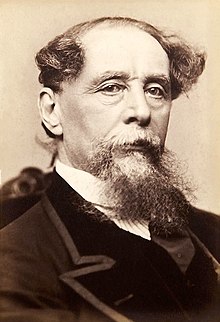How History and Politics create Literature
 I have been terribly absent from the blogosphere, but life does that to you sometimes. Now that I'm actually managing to settle into a routine at University, I am once again filled with knowledge at lectures that I now feel the need to spread. Today I caught up with an introductory lecture for a module about Victorian and Fin de Siecle module. It doesn't get much more introductory than being rushed through an entire century worth of historical context in one and a half hours. But then the realisation suddenly struck me how much history and politics influence literature and I decided to try and formulate my thoughts.
I have been terribly absent from the blogosphere, but life does that to you sometimes. Now that I'm actually managing to settle into a routine at University, I am once again filled with knowledge at lectures that I now feel the need to spread. Today I caught up with an introductory lecture for a module about Victorian and Fin de Siecle module. It doesn't get much more introductory than being rushed through an entire century worth of historical context in one and a half hours. But then the realisation suddenly struck me how much history and politics influence literature and I decided to try and formulate my thoughts.Everyone knows that literature is influenced by, even originates in, the everyday life of the author and his/her direct surroundings. It seems logical when you think about it, but I had never thought about it. Currently we are studying 'Great Expetations' by Charles Dickens, which I'm having a horrible time with, and we made a quick detour to the ever-so-famous 'Oliver Twist'. Dickens is one of the defining authors of the Victorian age and has, for many, defined how London looks: misty, industrial and dark. This perception wouldn't be too far from the truth. Living in the mid-1800s, Dickens experiences England in one of its most revolutionary and busy times. Industrialisation had hit Europe full force, the working class was expanding and literacy was booming. In his writing, Dickens reflected, or at least tried to reflect, the time he found himself in while it was changing around him.
'Oliver Twist' is the tale of a naive orphan who finds himself in a miserable workhouse before he flees to London where he gets involved with Artful Dodger and Fagin, who introduce him to a life of crime. One of the book's major themes is poverty and how it leads to criminal behaviour, especially among younger children and presents it as a constant threat in society, when many of the, now iconic, images were actually only very recent changes. Where would we have met Oliver, if the Poor Law Amendment Act of 1834 had not been passed four years before the book was published in 1838? Without this act, workhouses would never have existed since they were only opened to reduce amount of money the government spent on relief for the poor. A Factory Act passed in 1833 reduced the amount of hours children were allowed to work while still maintaining the legality of child labour as a whole, which offers an explanation for the normality with which the adults in 'Oliver Twist' treat their minor employees. Had the circumstances during the creation process of 'Oliver Twist' had been only slightly different, the novel would have taken a completely different spin and perhaps never achieved the iconic position it now holds in the English Canon. Had Dickens written it ten years later, Oliver would have possibly been a migrant boy from Ireland, suffering from the European Potato Failure in the 1840s, which led to an incredibly rise in mortality in Europe.

Had the time been different, perhaps all the characters would have had a different fate and I think this is something fascinating to realise every once in a while. Books are not only a reflection of their time, but also of the human spirit. In Oliver's struggle to a better life, Dickens manages to show Britain's, and especially the lower class', struggle towards a better existence in which there is more equality and less exploitation. And simultaneously, the novel shaped history in its own way. By writing about the vile, lower class villains, Dickens kept crime a decidedly classed problem. It is not just what they do that makes Fagin and Sikes despicable characters, it is what they are. Criminality is innate to their being but not to Oliver, whose origins lie securely in the middle class. As publishing took a huge boost due to mechanised printing and cheaper paper in the 1830s, literacy and literature spread through the middle class and upper class who now demanded entertainment. Next to a tale, Dickens gave them firm reassurance of the security of their morals and values against the dangerous outside world. Oliver's entrance into prosperity is granted to him due to his family origins, whereas there is no hope of class transgression for the other characters. In this way, literature shaped society, maintaining prejudices and beliefs while time was doing its best to change.
I hope this post has somehow been informative and interesting. If not, I sincerely apologize, but it has been a great way to get my own thoughts straight. Now if only I could actually read a Dickens book, in this case 'Great Expectations' without despairing of all my life choices that led me to that book, I could be happy.



Definitely an interesting post. I'm a bit of a polisci nerd and I took a course titled Literature and the Political Imagination (it was perfect for me) and we read several books in line with the concept you're discussing. Slight difference in historical and political background as all of my reads were American but still...to this day I find that a good portion of the books I read would fit into the syllabus for Lit.& Political Imagination course.
ReplyDeleteGood stuff!